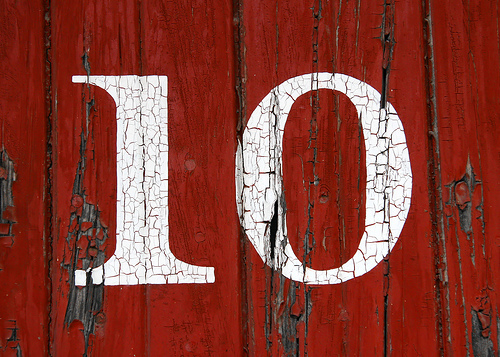How To Stop Procrastinating: 4 New Steps Backed By Research
Eric Barker stashed this in Diabolical Plans For World Domination
Stashed in: Practice, @bakadesuyo, Awesome, Willpower!, Begin!, Procrastination, Rituals
1) You Don’t Need More Willpower. You Need To Build Habits.
You don’t have a willpower problem. This wouldn’t all be better if you could force yourself to do that dreaded task.
As I talked about when I interviewed the foremost researcher on the subject, willpower is a limited resource.
Relying on it to get things done is a really lousy strategy. As Charles says, you really only have the willpower to muscle yourself to do about three to four things a day.
Yeah, three or four. (So basically I’ve used up all my willpower by the time I get out of bed.) So what’s the answer?
Building better habits. In fact, 40% of the things you do every day are habitual.
So if you can just move those awful, horrible mom-don’t-make-me-go-to-school tasks into the habit territory, you’re far more likely to get them done. Research shows we’re wayyy more productive when we automate tasks by making them habitual.
2) Turn That Habit Into A “Personal Starting Ritual”
I’ve posted a lot about the research and solutions to procrastination. What’s a common theme we see again and again?
Getting started is where the war is really won. This makes sense intuitively. Often it feels like something is impossible… but then once we get going we find it’s actually not that bad.
Finishing things isn’t as much of a problem as just getting started in the first place.
3) The Most Powerful Habits Change How You See Yourself
So what kind of ritual should it be? Something at work? One that helps you get boring chores done? Which one is going to have a nuclear bomb style affect on how you behave everywhere?
Charles calls these super-habits “keystone habits.” Exercise is one example. Here’s Charles:
There’s this fundamental finding in science that some habits seem to matter more than others. When researchers look at how people change their habitual behaviors, they find when some changes occur, it seems to set off a chain reaction that causes other patterns to change as well. For some people, exercise is a good example of this. When you start exercising habitually, according to studies, you start eating more healthfully. That makes sense. You start feeling good about your body. For many people, when they start exercising, they stop using their credit cards quite so often. They procrastinate less at work. They do their dishes earlier in the day. It seems to be evidence that for many people, exercise is a keystone habit. Once you start to change your exercise habits, it sets off a chain reaction that changes other habits as well.
So why are some habits keystone habits and others aren’t? Keystone habits change how you see yourself and that’s what causes the cascade of positive change. Here’s Charles:
The power of a keystone habit draws from its ability to change your self image. Basically, anything can become a keystone habit if it has this power to make you see yourself in a different way.
So what’s the task that really makes you feel accomplished? What makes you feel like “someone who gets things done”? That’s probably where your keystone habit lies and the first place you should attack.
(To learn the six things the most productive people do every day, click here.)











7:00 AM Jan 04 2015